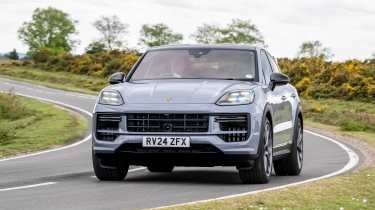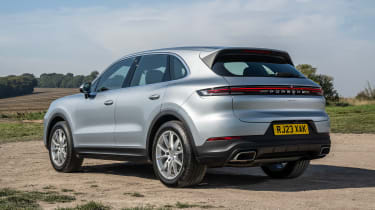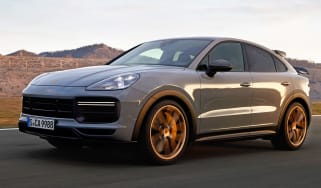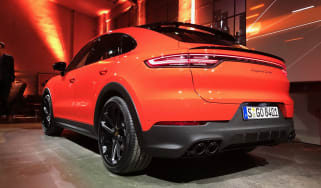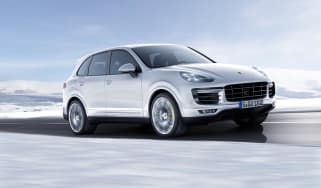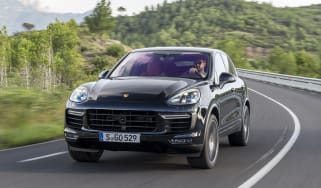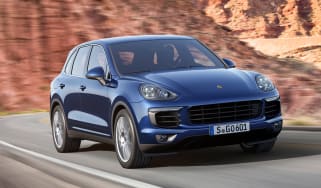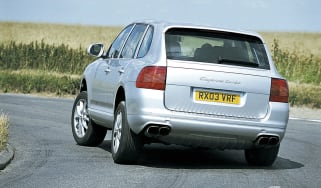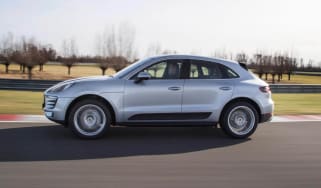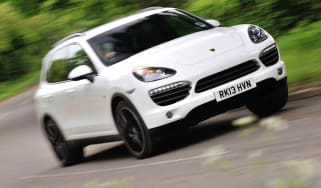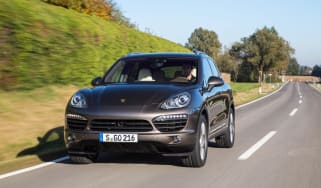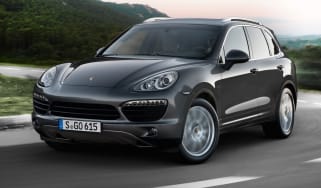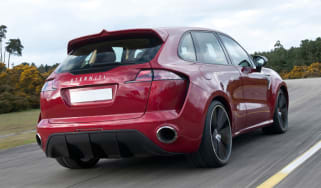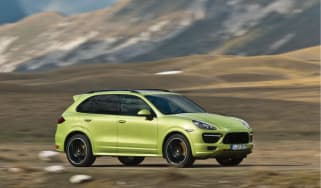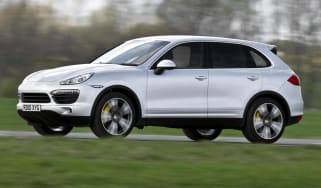Porsche Cayenne 2025 review – still the king of sporty SUVs?
There's clear sporting DNA in the latest Cayenne, evident in the base car and right up to the 729bhp Turbo E-Hybrid. Is it good enough to tempt you out of an RS6?
The Porsche Cayenne isn’t the trailblazer it once was. Not because it’s got any worse over the years – the previous version was among the most exciting SUVs to drive in Turbo GT guise – but because other manufacturers have caught on to its winning formula.
The original, along with the BMW X5, was one of the first SUVs engineered to be enjoyable and dynamic to drive (as incongruous as that sounds), but today there’s no shortage of rivals that offer the same, from the Range Rover Sport and Audi Q8, right up to the Aston Martin DBX and Lamborghini Urus. Put simply, the Cayenne has its hands full.
The third-generation Cayenne first appeared in 2017, but it’s since been subject to a comprehensive update levelled at its styling, cabin, powertrains and chassis. The new design and technology direction has been inspired by the Taycan EV, which has served as a reference point for other mainstream Porsches to follow – but does the new Cayenne still have a lead on the competition?
Porsche Cayenne: in detail
- Engine, gearbox and technical highlights > Turbocharged V6 and V8 engines make up the range, with or without plug-in hybrid assistance
- Performance and 0-60 time > The base Cayenne is brisk, and the top-level Turbo E-Hybrid churns out spectacular numbers
- Ride and handling > The Cayenne feels taut and keen for a large SUV, but some rivals are more cosseting
- MPG and running costs > The standard V6 model can easily beat Porsche's claimed fuel consumption, and PHEV models offer Benefit-in-Kind tax advantages
- Interior and tech > Porsche's superb ergonomics, quality and tech are among the best on the market, but the ambience is quite plain
- Design > Now one of the more attractive luxury SUVs, the Cayenne belies its size with clever detailing and a subtlety missing in some rivals
Prices, specs and rivals
The new Cayenne covers a huge area of the market, with the base car priced at £76,000 and the Turbo E-Hybrid Coupe GT Package costing a rather frightening £164,800. That gives it an awful lot of rivals to contend with, but from our first drive of the new model (and our experience of its predecessor), there’s enough latent talent in the package for it to take them on with confidence.
The Cayenne’s most obvious rival is the Range Rover Sport, which costs from £75,255 in diesel S form. The new Sport has already proved itself to have enormous bandwidth with a calm, luxurious feel and saloon-like dynamics all in one package, but like the Cayenne, it needs some optional chassis hardware to give its best (namely the £5330 Stormer Handling Pack).
BMW’s latest X5 also has the Cayenne firmly in its sights. We haven’t driven it yet, but with a starting price of £73,430, a revamped interior and BMW’s proven CLAR architecture, it could run the Porsche close.
Stretching to the GT Package-equipped Turbo E-Hybrid opens up a new realm of super-SUV competitors, including the Range Rover Sport SV and Bentley Bentayga. The previous Turbo GT had spectacular speed and ability for its size, and the even more powerful Turbo E-Hybrid pulls the same trick – although moments where you're able to use the full extent of its capability are few and far between.

